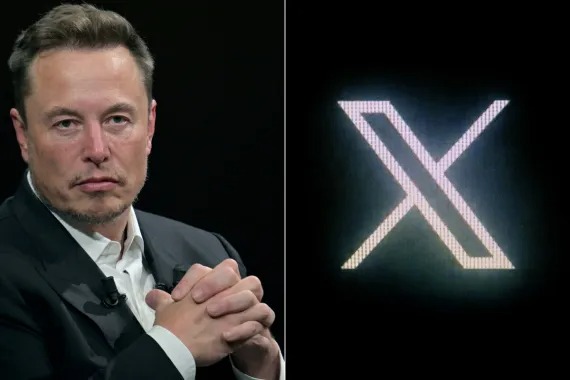In a striking move, the European Union (EU) has launched a formal investigation into Elon Musk’s social media platform, known as “X,” following growing concerns regarding the dissemination of disinformation and violent content surrounding the Israel-Hamas conflict. The European Commission, the governing body of the EU, has filed a binding request for information to assess X’s compliance with regulations addressing illegal and harmful content on online platforms. This decision comes after the platform had been accused of spreading potentially ‘illicit content,’ further intensifying global scrutiny of social media’s role in disseminating information during times of conflict.
European Commission’s Probe: Uncovering Illicit Content
The European Commission’s investigation into X is a response to credible “indications received concerning the presumed transmission of illicit content,” as stated in their official statement. This request demands X’s prompt response to a comprehensive 40-page document containing urgent queries by the upcoming Wednesday. For less pressing requests, the platform has until October 31 to provide the necessary information. The commission’s move reflects growing concerns about the impact of online platforms in promoting disinformation and violence amid sensitive global conflicts.
X Under Scrutiny: Worst-Performing Platform for Combating Disinformation
X, which has recently reduced its content moderation team under Musk’s leadership, has drawn particular attention after a recent EU study deemed it the poorest-performing platform in countering disinformation. Thierry Breton, often described as the EU’s digital “enforcer,” engaged in a public spat with Musk earlier this week, accusing X of permitting the proliferation of “violent and terrorist content.” Breton has also issued nonbinding warning letters to the leaders of other social media giants, including Meta, Instagram, and TikTok.
X’s Chief Executive, Linda Yaccarino, has staunchly defended the platform’s record. She pointed to the removal of hundreds of Hamas-linked accounts and the labeling or elimination of tens of thousands of pieces of harmful content. Nevertheless, the EU’s concerns, fueled by the proliferation of disturbing content, have prompted a deeper investigation into X’s compliance with European regulations.
Legal Consequences: EU’s Digital Services Act Implications
Under the EU’s Digital Services Act, which became enforceable in August, online platforms that fail to effectively address content deemed illegal could face substantial penalties. These penalties can include fines of up to 6 percent of their global turnover or, in extreme cases, being banned from operating within the EU. This act emphasizes the significance of online platforms in upholding content standards and addressing disinformation, especially during sensitive periods like the Israel-Hamas conflict.
The Israel-Hamas conflict itself is a matter of ongoing international concern. At the time of the investigation’s initiation, the conflict had entered its seventh day, with the Israeli army instructing over a million Palestinians in Gaza to move south within 24 hours, preparing for an anticipated ground offensive. The conflict has taken a harrowing toll, with Israeli air strikes on Gaza resulting in more than 1,500 Palestinian casualties and over 6,600 injuries, according to Palestinian officials. Conversely, Israeli officials report more than 1,300 casualties and 3,000 injuries caused by Hamas, marking the deadliest attack on Israel in decades.
As this investigation unfolds, it raises important questions about the role of social media platforms in disseminating content during times of conflict and the responsibility they bear in curbing disinformation and violence. The outcome of the probe could have far-reaching implications for online platforms operating within the EU, as they navigate the fine line between freedom of expression and the spread of harmful content.
















